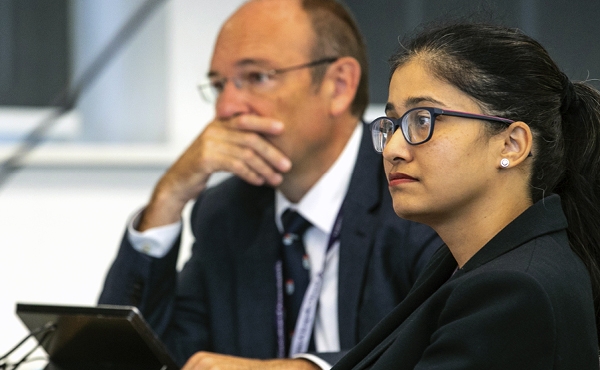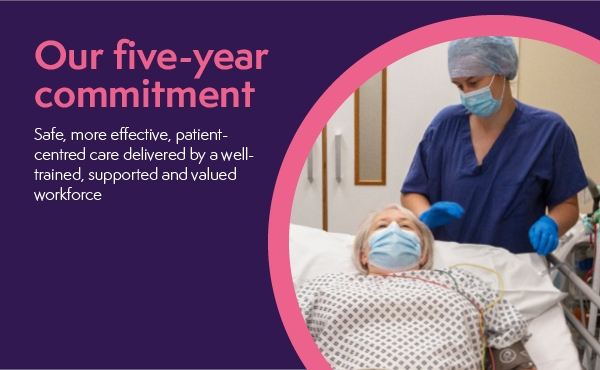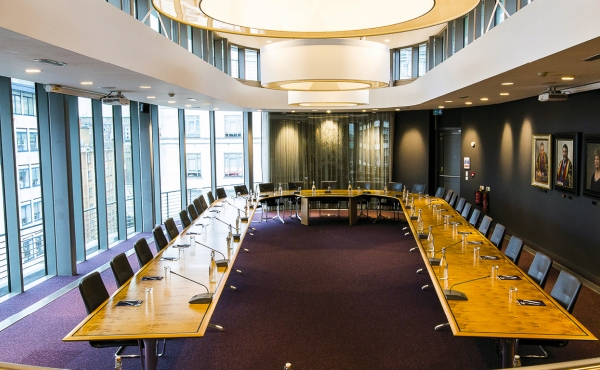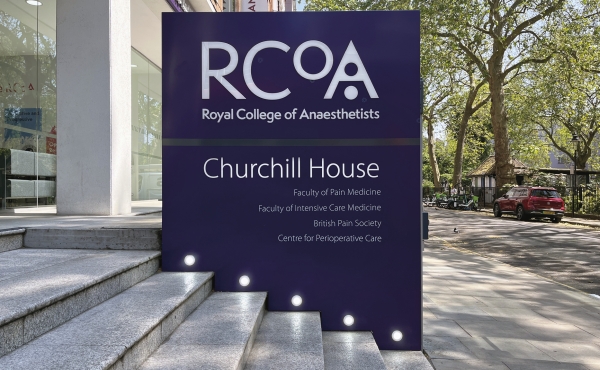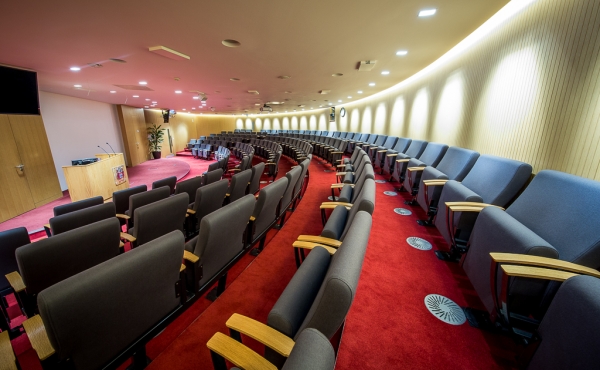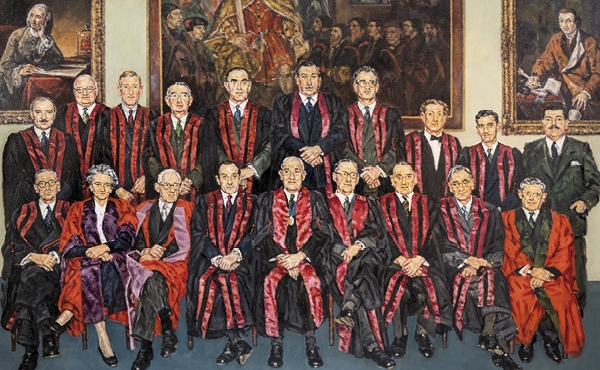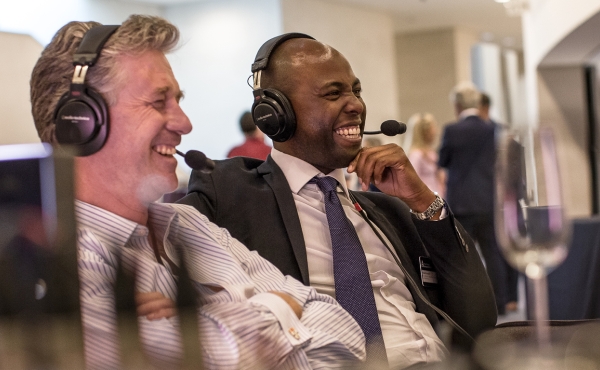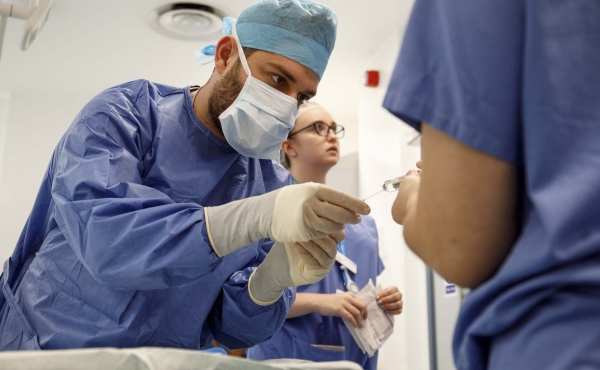About us
We are the professional body responsible for the specialty throughout the UK
We are the third largest medical royal college in the UK by membership. With a combined membership of more than 24,000 Fellows and Members, we ensure the quality of patient care by safeguarding standards in the three specialties of anaesthesia, intensive care and pain medicine.
Working with our combined membership of more than 24,000 Fellows and Members, we remain committed to championing the diverse and critical work of anaesthetists, and the science that underpins our work.
Our key areas of work include:
- recruiting, training and examining anaesthetists to the most exacting standards
- supporting our fellows and members throughout their careers, irrelevant of age and location
- setting high standards of clinical care to ensure the constant improvement of patient care and safety
- working collaboratively, through the National Institute of Academic Anaesthesia's Health Services Research Centre to advance, fund and promote research activity
- acting as the voice of the specialty on behalf of our membership while promoting the sharing of knowledge and best practice
- working closely with government on crucial policies and with key stakeholders across the UK and overseas to ensure that anaesthesia and anaesthetists continue to play a central role in shaping and delivering the healthcare agenda.
The College is the home of the Faculty of Pain Medicine (FPM) and we are proud to be one of the eight parent Colleges of the Faculty of Intensive Care Medicine (FICM). We also host the Centre for Perioperative Care (CPOC), which promotes multidisciplinary approaches to improving perioperative care. Perioperative care is inextricably linked with our strategic direction and is vital to the future of the specialty. It’s a collaboration of healthcare professional organisations committed to the promotion and development of perioperative care in the NHS, hosted and majority funded by the RCoA.
What we do
With our fellows’, members’ and patients’ interests integral to our work, our Strategic Plan 2022–2027 reflects our vision for the future of our College and our specialty. This strategy also defines the values that provide a solid, coherent and focused foundation upon which to build our shared future.
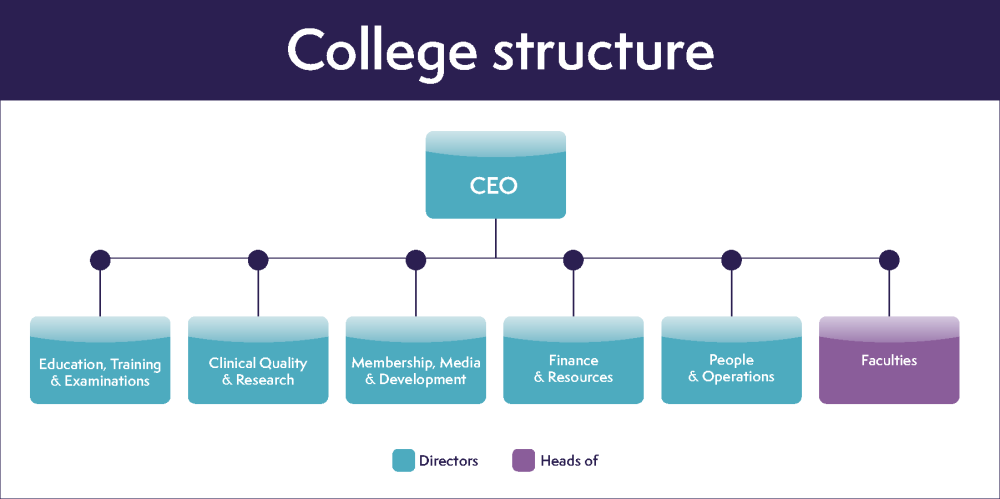
Directorates
Sharon Drake, Interim Chief Executive
Responsibilities (not exhaustive)
Budget setting, Council, devolved nations, elections, faculties, fundraising, governance, operational plans, Executive Team, strategy, information technology.
Russell Ampofo, Director of Education, Training and Examinations
Responsibilities (not exhaustive)
Careers (including student, FY, AAs and SAS doctors), curricular, College tutors, CPD, equivalence, examinations, recruitment, revalidation, trainee e-Portfolio, training, global partnerships, regional advisors in anaesthesia, workforce and census.
Carly Melbourne, Interim Director of Clinical Quality and Research
Responsibilities (not exhaustive)
Academic, AACs, accreditation, clinical audit, clinical quality, clinical standards, Clinical Trials Network, consultations, health policy, HSRC, invited reviews, Lay Committee, NIAA, patient information, patient safety, perioperative medicine, policy and public affairs research, quality improvement, sustainability.
Mark Blaney, Director of Finance and Resources
Responsibilities (not exhaustive)
Audit, budget and budget setting, contracts, finance, risk register, trading company.
Fran Bright, Interim Director of Membership, Media and Development
Responsibilities (not exhaustive)
Archives, catering, communications, digital communications, digital resources, e-Learning, education, events and courses, internal communications, journals, media, membership experience and engagement, podcasts, publications (inc The Bulletin), venue hire.
Judith Tidnam, Director of People and Operations
Responsibilities (not exhaustive)
Recruitment, staff training, pay and reward, ways of working, employment policy and compliance, organisation development, facilities and estates management, equality, diversity & inclusion, health and wellbeing, reception, workplace and estates sustainability.
16% of all hospital consultants are anaesthetists and over two-thirds of hospital in-patients will see an anaesthetist.

